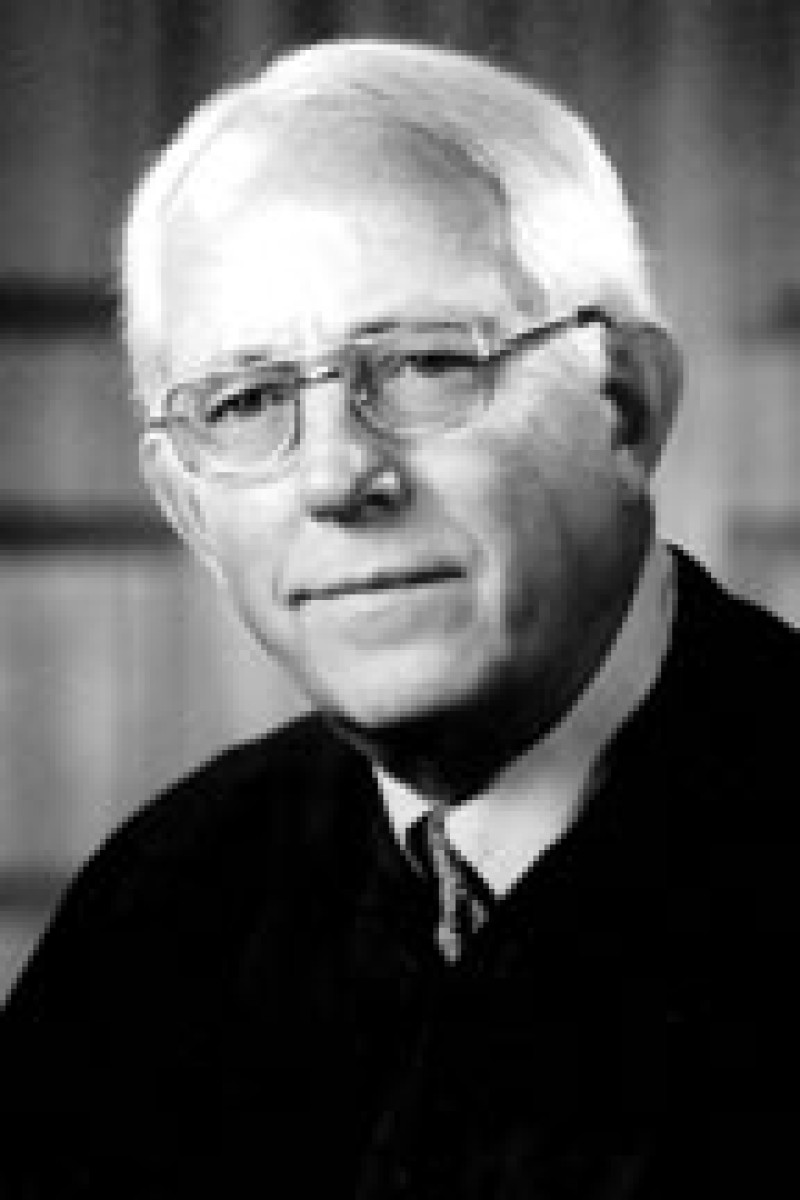William Burbridge Brown
William Burbridge Brown was born in Chillicothe on Sept. 10, 1912 to Dr. Henry Renick and Mabel R. Downs Brown. Brown attended Chillicothe public schools, lettering in football, basketball, and track, before attending Williams College, where he received a bachelor’s degree in 1934. Following graduation, Brown enrolled at Harvard Law School, graduating with a law degree in 1937. He was admitted to the Ohio bar in 1938 and practiced law initially with the Toledo firm of Ritter & Daugherty. He returned to Chillicothe in 1939 to begin practicing law with the firm of Simpson and Brown.
He left Chillicothe in 1942, to accept a position as a lawyer with the U.S. Office of Price Administration in Washington, D.C. In 1943, Brown transferred to Honolulu by the Office of Price Administration, where he served until 1946. President Harry Truman appointed Brown to the Hawaii Territory Court of Tax Appeals in 1946 and in 1947, Truman appointed Brown territorial treasurer, a post he held for four years. In 1951, the President appointed Brown to the Second Circuit Court for the Territory of Hawaii. He held that post for four years before returning to Chillicothe in 1955.
In an interview with the Columbus Citizen-Journal, Brown described his judgeship in Maui as a “common pleas sort-of judge.” Criminal cases were tried on Maui, but he often traveled to smaller islands for civil cases. “We’d take a group of about 10 people – probation officers, clerks, and bailiffs,” he said, “I’d divorce ‘em, I’d adopt’ em, I’d probate ‘em and the next morning we couldn’t go back because there was no plane. It only came every three days, so we’d go deep-sea fishing for a while.” According to the interviewer, a smile crossed his face when he recounted the part of the story about deep-sea fishing.
Brown returned to private practice in Chillicothe for a single year before returning to public service. In 1956, he began a four-year term as Chillicothe Municipal Court Judge. Four years later, Brown campaigned successfully for a seat on the 4th District Court of Appeals of Ohio. His election marked the first time a Democrat was elected a judge in the 4th District.
Brown defeated incumbent Justice Louis J. Schneider in 1972 for a seat on the Supreme Court of Ohio and defeated Richard M. Markus in his re-election campaign in 1978. Brown’s supporters attributed his electoral success to his experiences as a judge in Hawaii, having a fine legal mind and a good sense of justice. They also believed he possessed a “good touch with people and was very down to earth.”
In the 1980 case, The State ex rel., Beacon Journal Publishing Co., v. University of Akron,Justice Brown wrote for a unanimous Supreme Court and affirmed the decision of the 9th District Court of Appeals of Ohio. The Akron Beacon Journal was denied access to two Akron University police incidence reports. One report concerned an alleged rape of a student on the university’s grounds and the second pertained to the circumstances surrounding the student’s death. The university claimed that the reports were not considered public records before 1980 and, thus, not available. The 9th District Court of Appeals found for the Beacon Journal Publishing Company. Justice Brown dismissed the University of Akron’s claim upon appeal because, in his view, the information that was sought was contained in routine factual reports that the university police were required to keep. The reports were not “confidential law enforcement investigatory records.” Also, police incidence reports are not specific investigatory records compiled in anticipation of a civil or criminal action or proceeding.
Following retirement in December 1984, Brown and his wife, the former Jayne Stone, who he married on Aug. 18, 1943, planned to travel. The Browns, who had two children, were looking forward to returning to Hawaii.
During their marriage the Browns visited 75 countries. Neither could name a country or world city they had not seen.
Sadly, Brown’s travels were cut short. He died Dec. 24, 1985 from a stroke suffered while battling brain cancer. Funeral services were held at Chillicothe’s St. Paul Episcopal Church. Burial took place in Grandview Cemetery in Chillicothe.
Members of the Supreme Court remembered Brown’s penchant for crossword puzzles and his love of gin rummy. They also remembered his two photo galleries that he kept in his judicial offices: one for judges he admired who would remind him to be fair, and a rogue gallery of law clerks.
Supreme Court of Ohio Justice Craig Wright spoke of Brown: “He was one of the best legal minds we’ve had on the court in the last twenty years. He was a forward-looking person. He kept the best of the past in his decisions along with the best of what we have now. I admired him.”

b. Sept. 10, 1912
d. Dec. 24, 1985
131st Justice of the Supreme Court of Ohio
TERM
Jan 1, 1973
to Jan 1, 1984
